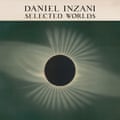Self-taught pianist and composer Daniel Inzani has been a pivotal figure on the Bristol scene for more than a decade. He leads a neoclassical outfit, Spindle Ensemble, co-curates the excellent Hidden Notes festival in Stroud, and he’s worked with a baffling array of outfits, playing Ethiopian funk, Indonesian gamelan, ska, 1950s-style exotica and post-rock, as well as working with fellow maverick musicians Alabaster DePlume and Cosmo Sheldrake.

His first big solo release unites many of these influences – not as mushy pan-global fusion but three linked LPs, each disc exploring a very different side of his musical personality. What could be a huge act of hubris is transformed into gold by Inzani’s slightly unhinged sonic adventurousness and his storytelling skills.
Disc one, Form, comprises formal chamber compositions, bookended by a Bartók-like string quartet in four movements and a Keith Jarrett-ish piano solo. Midsummer is a piano trio pitched somewhere between Satie’s Gymnopédie and a Persian ghazal; Midwinter is a galloping waltz featuring the raga-inspired cello playing of Asha McCarthy. Disc two, Lore, features spiky pieces for an extended ensemble that sound like excerpts from a film score, mixing marimba-led minimalism, Psycho-style orchestral stabs, growling bowed basses and icy, dissonant strings; it also includes a tremendous, 19-minute tone poem called Sounds for the Unseen.
Featuring a jazz-friendly ensemble, disc three, Play, draws together the most compelling strands of recent British jazz: the dancefloor-friendly Afrobeats of Ezra Collective and Kokoroko; the punky rambunctiousness of Acoustic Ladyland; the ecstatic spiritualism of Matthew Halsall; the wonky pentatonic Ethiopian scales used by bands such as the Heliocentrics. The reference points might change, but all three LPs share a sense of musical clarity. There is a narrative logic to Inzani’s compositions that is compelling, heart-rending and gloriously disturbing. Someone give this guy a movie soundtrack immediately.
Also out this month
Best known for his soundtracks and collaborations with the likes of Bon Iver and Arcade Fire, Canadian saxophonist Colin Stetson also makes fine solo records. The Love It Took to Leave You (Invada) sees him making his effects-laden saxophone sound like a spectral church organ, fog horn, a drum kit or wounded ox, moving from circular-breathing minimalist arpeggios to ecstatic freakouts. Helsinki-based Heli Hartikainen’s saxophone also rarely sounds like one. Chronovariations sees them attaching electromagnetic speakers to scrap metal sheets and pipes, and using these objects as secondary sound sources. Low-pitched drones and hymnal sax improvisations are drenched in reverb and accompanied by spectral creaks, metallic rattles and shimmering effects. Ibukun Sunday is a Nigerian viola player whose album Harmony/Balance (Phantom Limb) is a piece of meditative, drone-based music that sometimes flirts with dystopian horror, but always resolves itself, throbbing and glistening with a quietly ecstatic joy.
Source: theguardian.com


